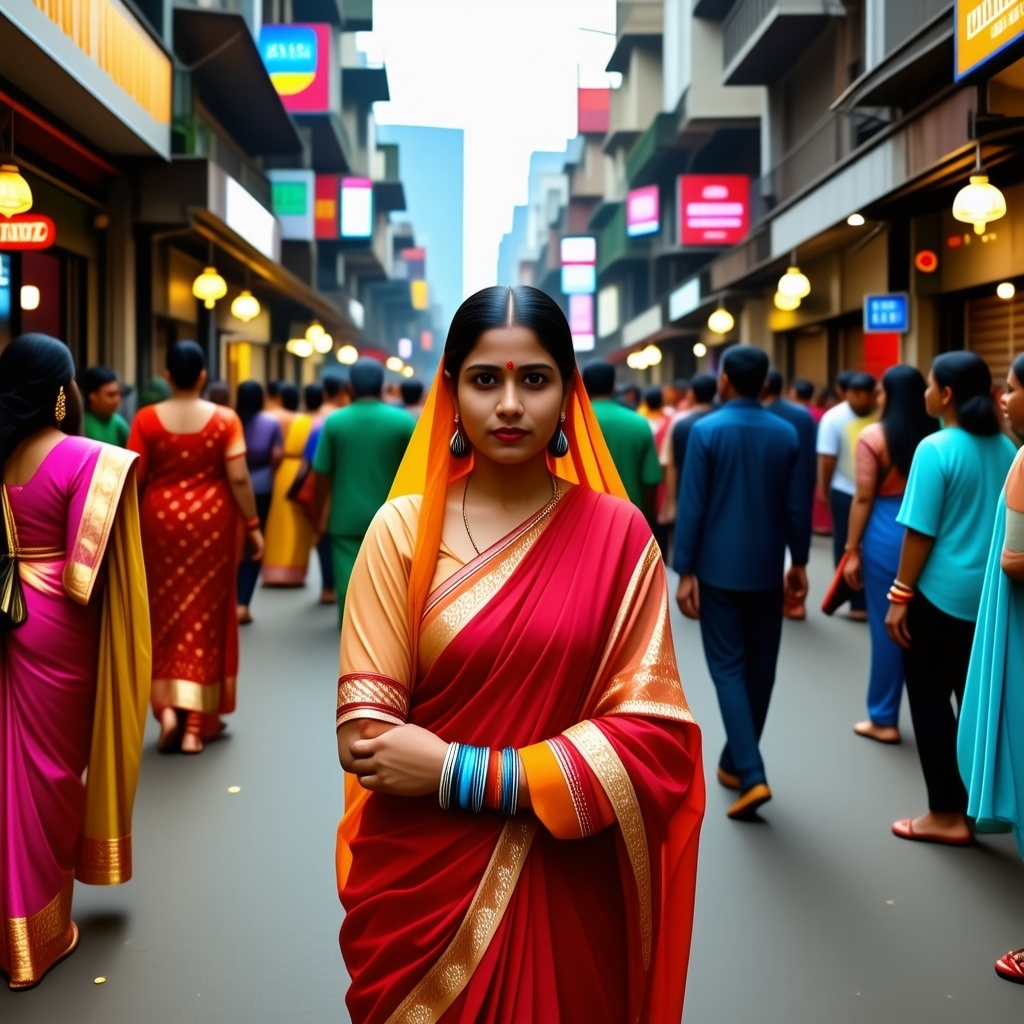Chapter 1: The Departure
The train hissed and groaned as it pulled out of the station, carrying Aanya away from the only place she had ever called home. Her fingers trembled as she clutched a paper cup of lukewarm coffee, eyes fixed on the blur of trees outside the window. It wasn’t just geography she was escaping. It was everything — the small-town whispers, the guilt-ridden nights, and the name she could no longer bear to hear from others’ lips: "The girl whose brother..."
Mumbai was supposed to be her fresh start. A city bustling with strangers, stories, and the blessed anonymity she craved. Nobody here would recognize the weight she carried or the grief lodged like a thorn in her chest.
Chapter 2: First Breath
The heat smacked her in the face the moment she stepped off the train, but Aanya welcomed it. It felt like a cleansing burn, stripping away the memories of her past. Her PG room in Andheri was modest — a single bed, a dusty ceiling fan, and a window with a cracked pane. It wasn’t much, but it was hers.
She started her internship at a digital marketing agency the very next day. Her new colleagues were young, energetic, distracted — perfect. They never probed too deeply. Aanya became the mysterious girl who was always polite, always stayed late, and never talked aboutherself. When the others chatted over chai breaks about weekend plans or complained about roommates, Aanya would smile faintly and nod, her thoughts adrift elsewhere. She liked it that way — distant but present, just enough to not seem odd.
Yet the city, with its relentless pace and soundscape of honking horns, had a strange way of forcing people to feel alive. At night, lying under the weak breeze of the ceiling fan, Aanya would listen to the rattle of passing rickshaws, the occasional bark of a stray dog, and the distant echo of Bollywood music from a neighbor’s radio. It was chaotic. It was loud. It was healing.
By the end of the first week, she had memorized the fastest routes to the office, found a street vendor whose vada pav didn’t upset her stomach, and begun to learn the art of blending in — shoulders square, eyes forward, voice firm. In a city where everyone had their own secrets, hers simply became one more drop in an ocean of silent storms.
But there were moments — quick, unguarded moments — when memory caught her off guard. The sight of a boy wearing her brother’s favorite color, the muffled laughter of siblings chasing each other at a station platform, a certain tune hummed by a tea seller that tugged at something fragile in her. She would freeze, breath hitched, before shaking herself out of it and diving back into her tasks.
One evening, as she stayed late to fix a presentation that had gone awry, her manager, Vihaan, leaned against the doorway. He was in his late twenties, casual yet sharp-eyed.
“You always stay late,” he said, more observation than question.
She glanced up, caught off guard. “I like the quiet.”
He nodded, then walked in and perched on the edge of her desk. “Most people avoid silence. It makes them remember things they’d rather forget.”
Aanya didn’t respond, her fingers still resting on the keyboard.
Vihaan studied her for a second longer. “Just don’t let the city swallow you whole, Aanya. It’s easy to disappear here.”
He left without waiting for a reply.
That night, for the first time since her arrival, she dreamed — not of her brother’s lifeless face as it had last been, but of them as children, laughing on a swing set, their voices echoing into the golden dusk.
It was fleeting.
But it was a start.
---
Chapter 3: The Ripple
Sunday mornings were supposed to be lazy. But Aanya was wide awake before dawn, her body still caught in the rhythm of work and worry. She decided to explore — no destination, no map, just her feet and a city that didn’t care where she had come from.
As the sun rose over Marine Drive, she stood by the parapet, sipping cutting chai from a paper cup, watching joggers pass her by. Something about the breeze, salted with sea spray and diesel, made her feel alive in a way she hadn’t in years.
That’s when she saw him — a boy no older than ten, sitting on the edge of the sea wall, sketching furiously in a worn notebook. His face, framed by unkempt curls, was eerily familiar.
Too familiar.
She took a hesitant step forward — and stopped.
It wasn’t her brother. Of course not. But the resemblance was like a ghost brushing past her shoulder. It hit her so hard she had to grip the railing for support.
The boy looked up, met her eyes — and smiled.
It wasn’t the smile of her past. It was something else. A ripple. A reminder that grief could bend, could soften — could open the door to something new.
Aanya turned away, heart pounding, and walked back into the morning crowd. Maybe she wasn’t just running anymore. Maybe, just maybe, she was beginning to arrive.



 React
React
 React
React
 React
React
 React
React
 React
React